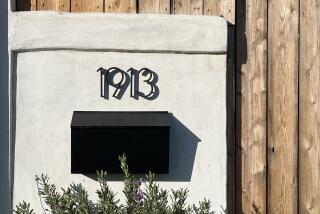Evaluating Neighborhoods & Schools
- Share via
Evaluating a neighborhood and its schools is an important aspect of your search for a home, especially if you have children. Will the neighborhood be safe for your kids? Does the school system have a good academic reputation? Checking public records is a good starting point, as is a leisurely drive through a neighborhood at various times of the day and on different days of the week. This will give you a good idea of what the community is like. Here are the key things to look for:
Schools. Make an appointment to tour the local school and meet the principal. Research school test scores, student-teacher ratios, average class size and special-education classes on community Web sites, and read online blogs by parents whose children attend the school you’re considering. Speak with local parents to learn firsthand about the school’s strengths and weaknesses. Also ask about transportation options and before- and after-school programs.
Crime. Visit the local police station or search online for crime statistics and information on registered sex offenders in the community. Neighborhood watch groups are a good indicator of local involvement in keeping a neighborhood as safe as possible. Good operating street lighting is a must have to prevent crime.
Public records. The county courthouse is a good tool to search for foreclosure actions, eviction proceedings and absentee owners.
Even property values. A sign of a stable investment neighborhood is one where the homes have similar sizes, styles and lot characteristics. Look for public sidewalks, paved streets and storm-sewer systems. Many buyers at resale will want these public improvements.
Properly maintained properties. Are the majority of the homes nicely maintained? The pride of homeownership by residents and routine maintenance by the local government are good signs that the neighborhood is stable.
Full public utilities. Ask about public water and sewer availability. Some areas still have private water wells and septic systems, or a mix of public water and private sewers. Private systems can be a deal killer to home buyers, who don’t want to manage a private system. Check to see if the electric services are buried or above ground. Buried services are less likely to be damaged in storms.
More to Read
Sign up for Essential California
The most important California stories and recommendations in your inbox every morning.
You may occasionally receive promotional content from the Los Angeles Times.




